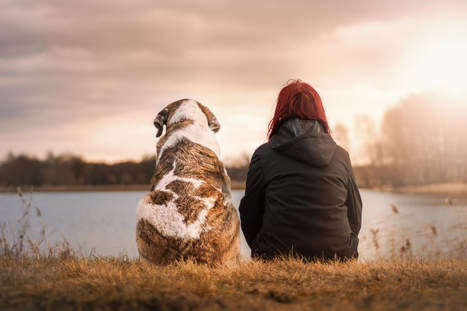|
We are a nation of animal lovers. The vast majority of Americans believe we have a moral duty to protect animals and we should have strong laws to do so. A poll from a few years ago showed that three out of four Americans believe it should be illegal for shelters to kill animals if those animals are not suffering. So why does it continue to happen? Good question. People tend to focus on what is important to them in their own lives. It is human nature. We all have certain people, problems issues and concerns on our “personal radar” on an ongoing basis. We may have general knowledge or opinions about other issues, but we normally don’t devote too much time thinking about those things because they don’t affect us or our every day lives. It’s not that we don’t care. It’s just that most of us lack the “bandwidth” to remain fully engaged on all of the topics we find important on an ongoing basis. This means that most Americans give very little regular thought to what happens at animal shelters using tax dollars and donations. Although we all pay for animal control and sheltering in some way, we still would not pay much attention to the topic even if our monthly bill for garbage and recycling pick-up included a line item for animal care and disposal. We think about shelters when we lose a pet or when we learn about some event or we are told about some tragedy. On other days, the shelter just “is,” pretty much like our view of other municipal functions on which we spend money. Law enforcement. Fire services. Engineering. Public works. Parks and recreation. I have long believed that if we are ever to reform our broken sheltering system in America, in which the vast majority of healthy and treatable animals are still killed by the millions, we have to put that subject on the public radar and get people involved. I once described the separation between animal lovers and animal shelters like two groups of people on opposite sides of a chasm. On one side are the people who own and care for animals or at least like animals. They are at best family members and at least serve some purpose. Most of us include our animals in family celebrations and may take them on our vacations. We buy them beds and toys and treats and provide them with regular veterinary care. We expect that the people in the sheltering system will operate in ways which are consistent with our values and many of us just presume that all animals who end up in shelters are given an opportunity to be adopted. On the opposite side of this chasm are people in the sheltering industry. Most of them (but certainly not all) care about animals and do their very best with the resources they have. Many of them, however, work in a defeatist culture with calcified attitudes in which healthy and treatable animals are destroyed. They see this as some terrible task they must perform because there is no other way to function while blaming the destruction on the “irresponsible public” which is on the opposite side of the chasm. Not every shelter functions this way, of course, and many have become very progressive. I’m speaking for the majority of shelters which still destroy animals regularly and with no apparent regard for the very real fact that the way to stop that archaic practice has been known for decades. Some communities change the culture at the animal shelter through municipal leadership or nonprofit leadership (in cases where the shelter operation has been outsourced to a nonprofit organization). Change is hard and those communities are to be commended. Most communities which change do so as a result of public pressure. People don’t like it when their money is used in ways which are inconsistent with their values. Once you tell people that healthy and treatable animals are dying and they are paying for it, most get mad, some get vocal and others become community activists seeking change. In all places where change takes place, there is one common denominator. The public didn’t suddenly become more responsible. It was the shelter operation itself that changed. It absolutely helps for the public to be invited to be part of that change. Their buy-in is actually vital to the process. The No Kill equation I promote contains 11 elements, but vital to most of those elements is public awareness and participation. The last documentary film about the No Kill movement was released in 2014 - “Redemption: The No Kill Revolution in America.” The film has since been made available by Nathan Winograd on Vimeo for free. It is based on Winograd’s 2007 book by a similar name - “Redemption: The Myth of Pet Overpopulation and the No Kill Revolution in America.” If you have not seen the film, you owe it to yourself to watch it for free while you can. It runs just over an hour.
At about the same time Redemption was released, documentary film maker Anne Taiz began working on the first of two fills about the No Kill movement. The first is called “No Kill: The Movement Begins.” This film focuses on both No Kill efforts and failures in the City of San Francisco. The people who appear in the film include Richard Avanzino; Nathan Winograd, Director of the No Kill Advocacy Center; Julene Johnson, former San Francisco SPCA volunteer; Dr. Kate Hurley of the Koret Shelter Medicine Program at UC Davis; Maria Conlon of Give Me Shelter Cat Rescue; and Dr. Jennifer Scarlet, the current director of the San Francisco SPCA. The second film is not formally named yet, but will likely be something along the lines of “No Kill Across America.” I had an opportunity to meet with Anne on July 30th to talk about both films. My hope is that the story of Huntsville, Alabama, will be included in the second film, provided it is produced. We had a great connection and I think the story of the changes in Huntsville can inspire other communities to get ahead of this issue. I know that Anne is passionate about reaching the public about this very important and urgent subject. Like all documentary films, however, this film is only as good as the ability to finish the final production. All of the footage for “No Kill: The Movement Begins” has been shot and it has been partially edited. What is needed are finishing funds. You can make a donation toward completion of the first film using this From The Heart Productions platform as I have done. No donation is too small. A donation of $25 will give you access to see the “rough cut” of the film and provide feedback. A donation of $250 will give you film credit as an associate producer. Award winning actor and narrator Peter Coyote has agreed to narrate the film. https://fromtheheartproductions.networkforgood.com/projects/50444-documentaries-no-kill-the-movement-begins-rough-cut-screening-campaign A time will come when the outdated practice of destroying healthy and treatable pets in our nation's animal shelters will become part of our shameful past. We can reach that point faster if we reach more of the public and put this issue on the personal radar of as many people as possible.
0 Comments
Your comment will be posted after it is approved.
Leave a Reply. |
AuthorI am an animal welfare advocate. My goal is to help people understand some basic issues related to companion animals in America. Awareness leads to education leads to action leads to change. Archives
July 2024
Categories
All
image courtesy of Terrah Johnson
|



 RSS Feed
RSS Feed